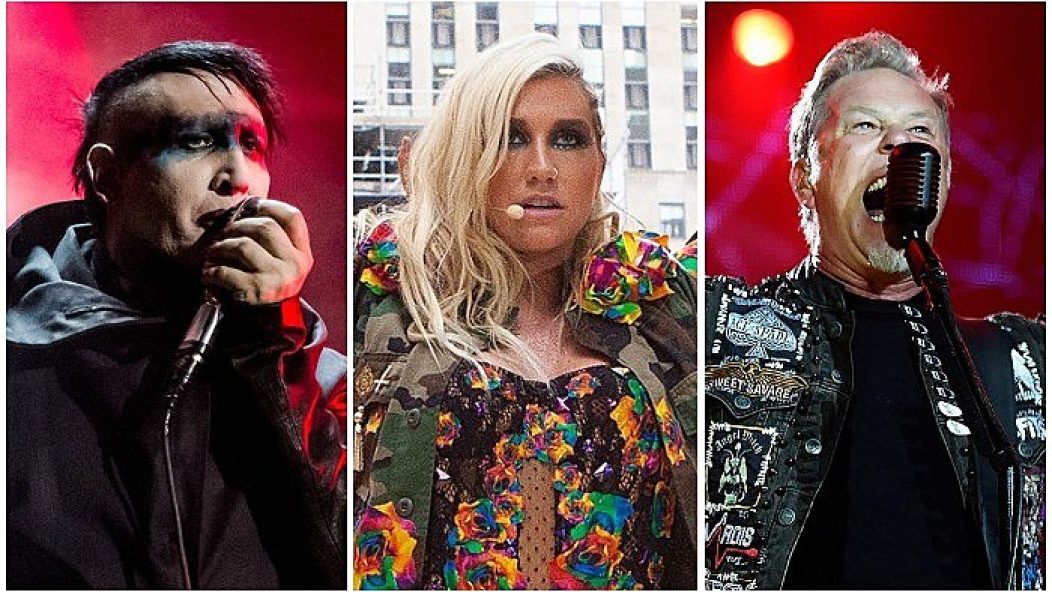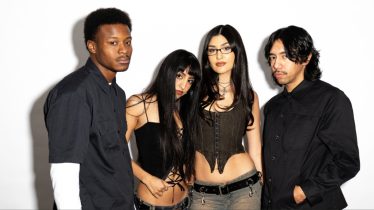
10 famous musician-related court cases that changed music
Music is supposed to be a form of entertainment, but when it comes to money or placing blame on someone over a wrongdoing, the excitement takes a back seat, and musicians make their way into the legal system.
Whether it’s copyright claims, contract disputes or the antics of the musicians themselves, artists have a long history with the courts, and many cases have created legal precedents that bleed into other areas of society as well.
Read more: We Came As Romans say why they won’t play ‘To Plant a Seed’ anymore
Take a look below at 10 court cases that shaped the music industry for years to come.
1. Metallica v. Napster
The Metallica debacle over Napster has shaped how we digitally acquire music since 2000, and it’s arguably one of the most notable court cases in music history. Once Metallica discovered Napster had been sharing their music through peer-to-peer services, they sought $10 million in damages and ultimately got their songs taken off the site. Once it shut down, countless others stepped in to push illegal downloads to the curb. Guitarist Kirk Hammett recently reflected on the suit on the Let There Be Talk podcast, stating the band “didn’t make a difference” in the grand scheme of things.
2. Parents Music Resource Center (PMRC) Senate hearing
If you’ve ever wondered why albums are required to have a parental advisory sticker slapped on the cover when there’s swearing on a song, it’s because of the PMRC. Led by four influential women of Washington, D.C.—including Tipper Gore—in 1985, the organization’s goal was to control the way children had access to music with themes of sex, violence or drug use. They created the infamous “Filthy Fifteen,” a list of artists including Mötley Crüe, Twisted Sister, Black Sabbath and more who were viewed as offensive. Despite numerous musicians fighting restrictions at the Senate, the Recording Industry Association of America (RIAA) agreed on the labels.
3. Marvin Gaye estate v. Robin Thicke and Pharrell
Robin Thicke’s “Blurred Lines” is one of the biggest cases of copyright infringement because the estate of Marvin Gaye wasn’t arguing the track plagiarized lyrics or beats but rather the “feel” of his song “Got To Give It Up.” Prior to the original verdict, other artists started crediting influences, including Sam Smith’s attributing Tom Petty for “Stay With Me” despite likenesses being only coincidence. In 2018, the case was closed, and the Gaye family won $5 million, but the judge made a point to say they copyrighted a style of music, which no one had done before.
Read more: Marc Jacobs countersues Nirvana over invalid copyright on smiley face
4. McCollum family v. Ozzy Osbourne
19-year-old John McCollum killed himself in 1984, and while it was deemed that the gunshot was self-inflicted, his parents didn’t feel it was entirely his fault. They opted to go after Ozzy Osbourne in court due to McCollum listening to “Suicide Solution” around the time of his death. They claimed the track had hidden lyrics encouraging suicide, but Osbourne argued it was actually an anti-suicide song, and after years in the courts, the case was dismissed in 1988.
5. Randy Blythe manslaughter case
Metal shows can look quite violent to outsiders who don’t understand how or why someone would want to mosh or stage dive, and this became a central point in Lamb Of God vocalist Randy Blythe’s life. A fan at a 2010 show in Prague died after complications related to stage diving when he shouldn’t have, resulting in Blythe being arrested and charged for manslaughter in 2012. Blythe spent some time in prison during the trial and was ultimately found not liable, but this affected the outlook of metal shows forever. The following year, Blythe announced he was writing a memoir on the trial, which was released as Dark Days in 2015.
Read more: Juice WRLD co-defendant files extension in Yellowcard lawsuit
6. Joshua Keasler v. Marilyn Manson
Marilyn Manson has always strived to be shocking, but not everyone at his shows consents to his antics. Case in point: In 2001, a security guard at one of his shows in Detroit was victim to Manson wearing a thong and panty hose while humping his head. Joshua Keasler filed suit against Manson for sexual assault and intentional infliction of emotional distress, and the case dragged out until 2004, where it was dropped and settled out of court.
7. Vanilla Ice v. Queen and David Bowie
The case over whether “Ice Ice Baby” and “Under Pressure” were the same is both hilarious and an important part of music history. The Queen and David Bowie collaboration was almost directly copied by Vanilla Ice, and he argued that adding one note to the bassline made it different. That obviously didn’t fly, and artists learned they can’t rip off other artists without repercussions since. Vanilla Ice later bought the rights to use the sample and can now receive royalties.
Read more: Slipknot call for Chris Fehn lawsuit dismissal likely to be denied
8. Kesha v. Dr. Luke
Even if you aren’t a fan of Kesha, her story in music is an incredibly unfortunate one. She’s still currently locked in a contract with producer Dr. Luke, who has allegedly sexually abused, raped and harassed numerous female artists he’s worked with. Dr. Luke allegedly held her back from releasing a record, and even though she’s now able to perform again, he profits from her work since she remains under contract. She’s still fighting to breach the contract today.
9. John Fogerty v. Fantasy, Inc.
This is easily one of the weirdest cases in music because it involved both performances in front of the courts and the concept of self-plagiarism. When Creedence Clearwater Revival frontman John Fogerty left the band and went solo, his former record label Fantasy, Inc. attempted to sue him for his song “The Old Man Down The Road,” citing it was the same as CCR’s “Run Through The Jungle” with different lyrics. During the two-week trial, Fogerty got up in front of the court with his guitar in hand, playing excerpts from both to show they were different and ended the idea that you couldn’t use your own personal style after moving forward.
10. Campbell v. Acuff-Rose Music, Inc.
2 Live Crew found fame for their sexually explicit lyrics, but their biggest case ever dealt with commercial parodies and fair use. The hip-hop crew wrote a song called “Pretty Woman” that parodied Roy Orbison’s “Oh, Pretty Woman,” and when they requested a license for the song, it was denied. They went ahead anyway, and after a battle in the Supreme Court, they won and established the fact that a work making money wasn’t enough to disqualify fair use law, but rather it was only a part of the analysis.







